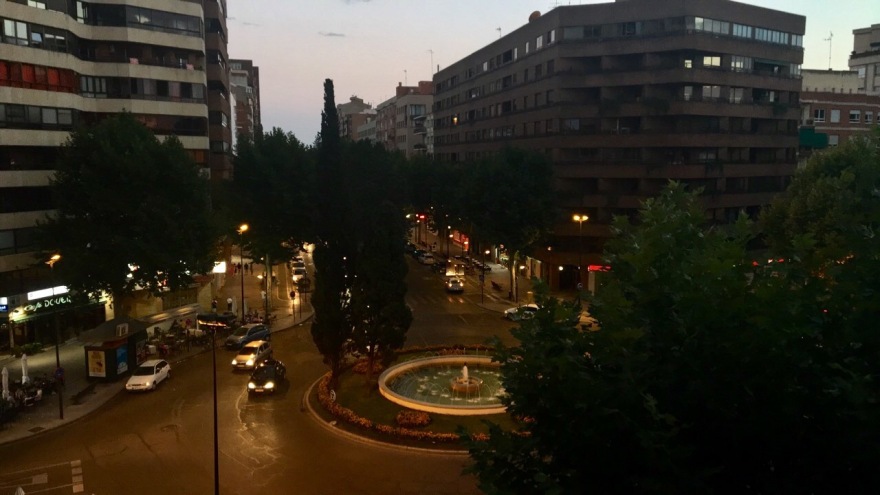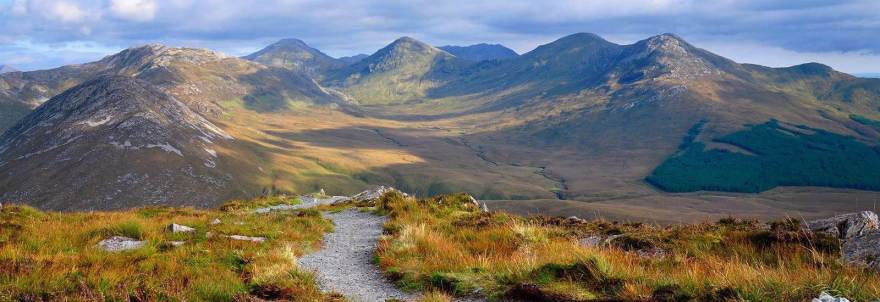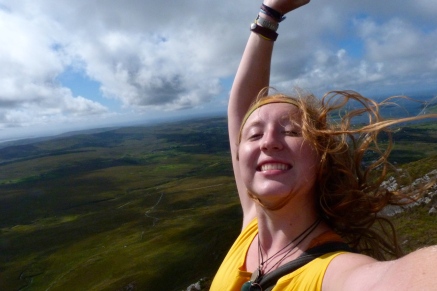As I write this, I am sitting on a beautiful porch in the city of Albacete, Spain. This is the place I will live for the next month, which still sort of feels like a heat induced dream from the warmest temperatures I think I’ve ever encountered. It is very hot in southern Spain in August.
 This is the view from my porch.
This is the view from my porch.
I’ve traveled to a fair number of places now, although the term ‘worldly traveler’ always feels like something other people use to describe me, rather than something I would boast about myself. Usually I am staying with friends, immersing myself in how they live and who they spend their time with- sort of just along for the ride.
This trip is different. This time, I have moved to a city where I know no one, and am starting an actual life. I’ll be doing the same thing in a month, when I move to the UK to start postgraduate studies at the University of Leeds. Right now I feel incredibly blessed to hear the sounds of traffic, and the voices of new people speaking a language I don’t fully understand. It’s terrifying and exhilarating, but I’m comforted at the familiarity of the trees in the park across the street. If you know me, this is not a surprise.
The last few travel experiences I’ve had have started to shed a light on a pattern of mine. All good psychologists love to identify patterns in human behavior, but I think pattern recognition is something that human beings inherently do well. It’s why overthinking is such a huge problem for so many of us! Patterns are important though. They help us understand why we do the things we do, and think the way we think.
For a few years now, I’ve been able to start putting a finger on the kind of traveler I am. Many people, when they travel, prefer to stay at hotels and visit national monuments and local tourist attractions. There are people who visit aquariums and take pictures of the signs to read later. Other people stay in hostels and visit as many museums as they can. There are people who eat street food and love local cuisine, and others who go clubbing and drink beer in beer gardens. I think every traveler is made up of some of these elements, and we are all intrinsically different.
I am a person who prefers homes to hotels, which is probably why I visit friends as often as I can. I want to experience the culture of a city, and live the way local people do. I like going to bars, and going dancing, and eating the most authentic food that is available. Immersive cultural experiences, rather than standing in line with other tourists to pay money to look at things I’ve seen in pictures.
Since coming to Spain, I’ve realized I have a pattern for growing comfortable in a new home. I think we all have them, these travel patterns. They remind me of migrating birds, how they use landmarks on the ground to navigate the path back to their winter homes. So, here are my landmarks:
- Step 1: Get to your home
I hate luggage. I hate traveling with more than a backpack on my back, something that I can easily navigate around other people. This trip, traveling with luggage has been the most excruciating experience, and because I packed for an entire year, I had a lot of it.
I am a person who nests, so as soon as I arrive, I like to get settled. I like to see where I am going to be sleeping, and feel what kind of home I am living in.
- Step 2: Go find food
Whether it’s buying groceries for a new flat, or going out and locating a sandwich to feed yourself, do it and do it alone. I find that the act of going and locating food is a really helpful way for me to feel comfortable in a new city. I think to myself, Okay, no matter what else happens here, at least you know you can provide for yourself.
Also eating is an amazing experience, especially when you’re in a new city. There are always new foods to try, and eating activates dopamine reward in your brain. This is a simple way I use to create a positive experience in my new environment.
- Step 3: Figure out modes of transportation
As a middle class American, I have grown up using cars. Living in the suburbs of Michigan, cars are a principal form of transportation, which makes them very comfortable. When I first learned how to use the Tube in London, the subway in New York or the local bus system, it was a bit of a nerve wracking experience for me. Similarly to eating, I find this step helps me to feel like I can take care of myself. No matter what else happens, at least I know that I can figure out where I need to do.
And if you can figure out how to use the New York subway system, you can do anything, right?
- Step 4: Go for a walk
I find there’s nothing as immersive as going for a walk. Walking is my preferred mode of transportation, when possible. It’s the best way for serendipity to find you I think, walking down streets and looking at shops, you never know what you might find. You could stumble across a beautiful sculpture or a park. I spent two days in Venice and did nothing but walk around the city, and actually got a little lost! Getting lost and finding something amazing is one of my favorite parts of moving somewhere new.
- Step 4 1/2: Find a park
I consider this a half step, because parks are my preferred place to take walks in. No matter where I go, being around trees and plants always makes me feel at home.
- Step 5: Meet local people
This step is a little bit harder to manage, because people are a lot harder to navigate than buying food. Often times, I will already know someone where I am going, which makes it easier to then meet their friends, but I think it’s important to be open to chatting with people you don’t know. Whether it’s someone at a bar, or the person whose made your coffee, these tiny conversations are little bits of life. People are what make life exciting for me.
I always make a habit of reaching out to people I know in an area. Another trick of mine is asking any of my friends if they know anyone in the area I’m going, and then making connections that way- even if it’s just for a casual drink. The other option, which is much more variable, are dating apps like Tinder, and OkCupid. Even though these are principally dating apps, often they’re also good ways to meet people.
These are the ways I often end up finding my way to being comfortable in a new city. Identifying the pattern helps me, and I always feel more confident when I fully know myself and how best I function. One other piece of advice, is something a good friend said to me once and that I’ve never forgotten,
“Everything seems worse when you haven’t eaten, or slept well.”
When I first landed in Madrid, I was so exhausted, and I hadn’t eaten, and I really seriously thought I had made a terrible decision. Then I fed myself and slept for a solid 13 hours, and I woke up the next day feeling much more optimistic. So, if you’re in the midst of traveling, or even just at home and having a terrible day, take a minute to think about the last time you ate, and whether you slept well last night. This is self care 101!
Thank you for reading! I hope my travel patterns have started getting you thinking of some of your own, and if you’d like to, share them in the comments and we can chat about them!

 August, 2012
August, 2012